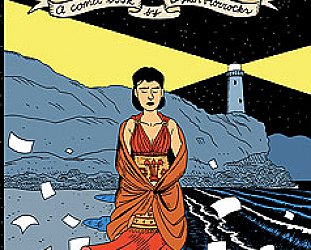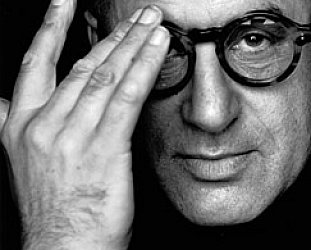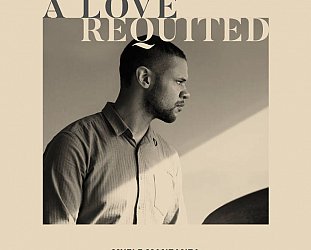Graham Reid | | 4 min read

Writers of trashy, salacious and titillating novels about the rich and famous -- Jackie Collins comes to mind -- must despair when biographies appear which reveal the moneyed and mediocre to be more tawdry, venal and sleazy than even those of their vivid imaginations.
Consider this litany of sexual intrigue and incestuousness from the higher realms of power: President John F. Kennedy had an affair with his wife Jackie's sister Lee, who later had an affair with Greek billionaire Aristotle Onassis before he became Jackie's second husband.
And Ari -- who quickly returned to the attentions of his longtime mistress Maria Callas after marrying Jackie -- had previously had an affair with actress Gloria Swanson when she was the mistress of JFK's father, Joe.
JFK, of course, also famously had an affair with Marilyn Monroe (he liked brother-in-law Peter Lawford to film her on top of him in the bath) and another with Rat Pack actress Angie Dickinson (who said Jack was a seven-and-a-half-minute man). And after JFK's murder Jackie found comfort in the arms of his brother Bobby.
Beyond that you need a map to follow the sexual back alleys of the extended Onassis family.
One misplaced virus and two generations of Hollywood, Sinatra's Rat Pack and a couple of major dynasties could have been wiped out.
Such peccadilloes are only marginalia in Bradford's dense, unblinking biography of Jacqueline Kennedy Onassis, which might now be of interest with the current movie Jackie (starring Natalie Portman) about those few days around his assassination in Dallas.
In a lurid pink cover (suggesting trashy salaciousness perhaps?) and with a title which echoes the Great Republic's anxiety about not having real royalty, America's Queen is a thorough, and thoroughly readable, account of the life of a woman who fascinated Americans for more than three decades but remained a well-dressed, aloof and elegant mystery to most.
Through the accumulation of biographical and psychological detail, and punctuated by the voices of friends, former friends and rivals, Bradford paints a portrait of an emotionally dependent woman, one for whom money was a more than adequate substitute for marital contentment.
She was coquettish and would seduce men's attentions with a soft, girlish voice, but was fiercely protective of herself and placed loyalty above all things.
She cut people out of her life with brutal finality if she encountered a real or perceived betrayal -- especially those who didn't subscribe to her invention of Washington as a glittering Camelot after the murder of JFK.
The young Jackie was a daddy's girl, despite her father -- widely known as Black Jack -- being a slightly louche but likeable, womanising rogue. However, it was her stepfather, the wealthy Hugh D. Auchincloss II, heir to a fortune from Standard Oil, who provided her an entre into the world of wealth and power.
As a teenager, doors in East Hampton opened for her, she was dubbed "queen debutante of the year" by a syndicated society columnist in 1947, European culture was a flight away, she attended parties which included the likes of Orson Welles, Rita Hayworth, Jean Cocteau (she spoke fluent French) and the artist Bernard Buffet.
And then she met Jack Kennedy.
JFK was much like her father but with more money. They married (it was a highly unhappy arrangement, often sexless as Jack's attentions were elsewhere), and before his ascent to the presidency they seriously considered separating. But each was useful to the other.
Throughout her life she could accept the infidelities of her husbands and lovers but never that she would come second to a mistress. They were firmly and often with chilling finality reminded of just who the king's consort was.
Part of her charm was that with her coy voice, engaging eyes and keen intellect she was "the perfect geisha" according to a friend who knew her late in her life.
"She always talked about you, and it was enormously appealing to sit opposite this woman who with all this baggage she carried, this fame and fortune or whatever, was totally absorbed by whatever it is you were saying to her, as if it was the most interesting thing she had ever heard."
The other side of that comes from Gore Vidal: "Both sisters [Jackie and Lee] were brought up to act like geishas, to get money out of men."
She gravitated to money and power and after her husband's assassination had a series of short-term lovers but settled on Onassis because he was older (another Black Jack), lived in Europe at a time when she wanted to escape the States, and had oodles of money.
As with JFK, however, he saw her as an asset rather than a woman. In Onassis' world, as within the dysfunctional Kennedy clan, women occupied an inferior position. It's telling that Onassis -- who appears to have loved her more passionately than JFK -- would have sex with her openly for others to see and once confessed to having paid Italian paparazzi to station themselves with snorkels to catch them at it on a beach.
Yet while she could be so used, she was equally manipulative. Despite that - and that she could be shallow, would use then discard people, massage the media, and ruthlessly controlled and protected JFK's image as if it were her personal copyright -- through the accumulation of detail in Bradford's book she emerges as someone you have sympathy for.
At both the White House and Onassis' island home she would undertake massive redecorating as if to control at least some part of her world, and she had lived through horrors most of us cannot comprehend.
Her first husband was shot dead and bits of his brain splattered over her, and she was the one who turned off the life support on his brother Bobby. She certainly loved Onassis but he too died, as did so many others in her wide circle of friends and acquaintances.
As photographer Peter Beard observed of her years with Onassis: "She would refuse to look beneath the surface of life because it was too painful to contemplate - the reality of her life in the past and the reality of the present. She was on the surface of life, trying to remain there."
There were plenty of reasons why she might shun the depths of life - it was far too complex and strange down there. Among the many photographs reproduced is one of Marilyn Monroe posing as Jackie.
That's how small, incestuous and bizarre this world of the rich, famous and emotionally warped sometimes was.
Top that, Ms Collins.





post a comment